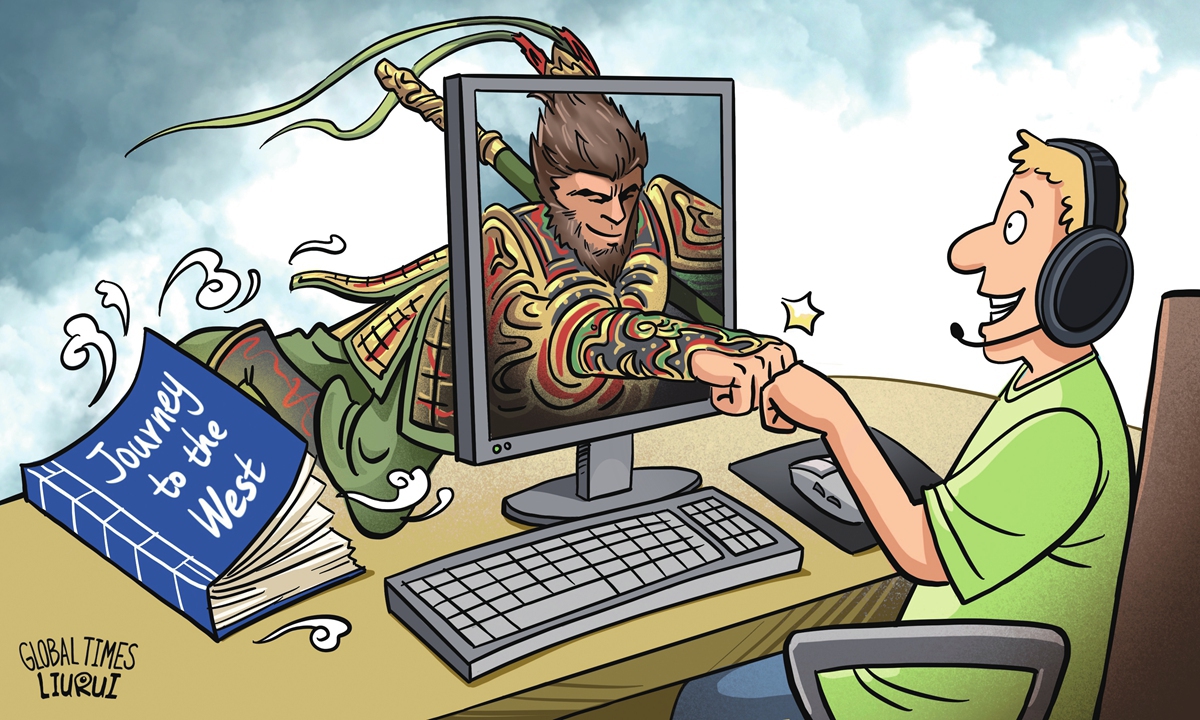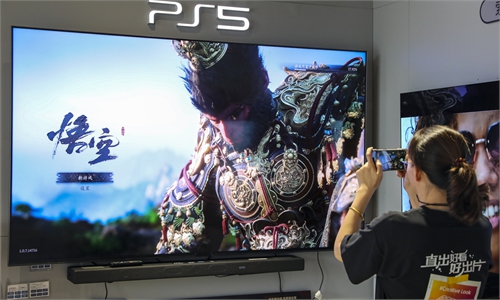
Illustration: Liu Rui/GT
Recently, an online meme created by a Chinese netizen, "You pretty, he ugly, you swan, he frog!" has gone viral on overseas social media, with some humorously commenting "Shakespeare could never!" This sentence, written in "Chinglish," a mix of Chinese grammar and English words, unexpectedly became a hit after a female foreign blogger Yourkris posted a sentimental update about breaking up with her boyfriend on a Chinese social media platform. Chinese users, touched by her post, sent Chinglish comments to comfort her through the breakup. "You pretty, he ugly, you swan, he frog!" This Chinglish translation of an old Chinese idiom "A toad wishing to eat swan meat," which means to crave for what one is not worthy of, soon becomes a popular meme among foreign netizens for its humor and "precise" description.In fact, the "campaign" of creating Chinglish internet memes has been going on for years and is still gaining popularity. A decade ago, the phrase "No zuo no die," which means "if you don't do stupid things, they won't come back and bite you in the back," gained such widespread influence both at home and abroad that it was even entered into the Urban Dictionary, an American online idiom dictionary.
At the beginning, most of these viral Chinglish memes were created unintentionally. The popularity of humorous internet phrases demonstrates how today's open and confident young people can laugh at themselves, while they also become a label of identity.
From the perspective of cross-cultural communication, using memes doesn't just bring satisfaction in terms of psychological identity. Using these memes also demonstrates self-confidence in front of the world and even a certain kind of cultural awareness of actively constructing one's own cultural discourse.
Speaking of cultural awareness, the first domestic AAA game Black Myth: Wukong has also recently become a hit, and received praise from players around the world. The monkey hero's name was directly translated into Wukong rather than the "Monkey King," and the name of his weapon into Jin Gu Bang, rather than a "gold-plated stick."
Another character, Hei Xiong Guai, was supposed to be translated into "Black Bear Monster," but in the end, it was translated into Black Bear Guai because the definition of "Guai" in Chinese culture is different from the word "monster" in the West.
These translation choices, after carefully considering and balancing the character characteristics of cross-cultural communication, have demonstrated a strong sense of cultural confidence and awareness.
People are impressed by the excellent quality of this domestic AAA game in terms of production, its strong performance in gameplay and technical aspects, and how enjoyable it is to play. Some netizens have even elevated it as a significant cultural export.
In reality, as China's national strength continues to grow, Chinese cultural products are increasingly gaining influence internationally. The cultural autonomy and confidence of Chinese people are becoming stronger, and the methods and capabilities for international communication are expanding. It's clear that whether through Chinglish or Chinese-English mixed memes, or the translation nuances in Black Myth: Wukong, these elements showcase a warm, relaxed attitude. As these aspects gain popularity both at home and abroad, the charm of Chinese culture bridges cultural differences and resonates with people, naturally enhancing the country's image.
In cross-cultural communication, faced with the long-established cultural dominance of Western developed countries through both soft and hard power, the younger generation in China increasingly believes that culture is diverse and no one culture should be subordinated to another. On this basis, we need to first cultivate cultural awareness by deeply understanding, embracing and taking pride in Chinese culture. At the same time, we should also familiarize ourselves with the global cultural context, engage in the blending and reorganization of world cultures, and actively promote our own culture to make it more widely known, recognized and appreciated worldwide.
In the internet age, language is no longer a closed system but rather an open, fluid, integrative medium. Every seemingly trivial online interaction can give rise to new linguistic phenomena and drive cultural exchange and collision. In international interactions across various levels and fields, the use of different languages and their expressive power increasingly facilitates contact, dialogue and blending among diverse cultures. This deepens connections between countries and helps intertwine the future of humans.
The author is a professor at the Political Science Institute of the China People's Liberation Army National Defence University. opinion@globaltimes.com.cn


